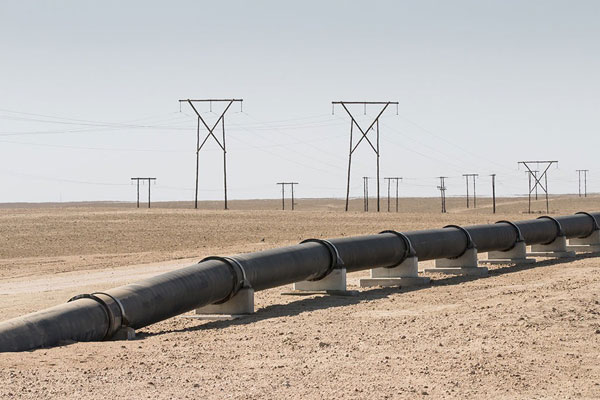Libya Oil Pipeline Leaks Hitting Output, NOC Chief Says
LONDON (Reuters) — The head of Libya's National Oil Corp (NOC) reiterated on Wednesday the need for funds for much needed repairs in the oil industry after corroded pipelines recently hit production.

Mustafa Sanalla told the Libya Investment Forum that Libya had lost about 50,000 barrels per day (bpd) of oil production at Akakus Oil in the past two weeks and that production had also fallen at Waha Oil Company due to pipeline leaks.
Waha's output fell to 130,000 bpd on Wednesday, from 285,000 bpd a day earlier, an oil source at the Es Sider crude export terminal told Reuters.
NOC aims to raise production capacity to 2.1 million bpd in the next few years from over 1.3 million bpd currently.
Asked about the main obstacles to reaching this target, Sanalla said: "To some extent it's the security, but the main problem is the budget.”
He said improving production at existing oilfields, some of which were damaged by conflict, was important for hitting this target.
Libya was producing 1.6 million bpd before a civil war erupted in 2011, battering its oil industry and slashing output to as little as 100,000 bpd last year.
Sanalla said that the NOC was planning to open a London office this month, a project that has been several years in the making, with the aim of facilitating doing business.
The office will focus on engineering projects, supply chains and training, he said.
Sanalla added NOC has re-launched plans to improve its production-sharing agreements with international oil companies (IOC) a process that it began in 2012-2013.
"We understand from our oil partners over the last few years that they have some concerns and we have addressed these concerns and that's why we have to make an attractive model for …IOCs," he said.
The NOC plans to hold a workshop with IOCs before seeking approval from the government to update its current exploration and production sharing agreement model, he said, without elaborating on what changes were being sought.
Waha Oil Co aims to return to normal output operations on Thursday after fixing a leak on a pipeline that more than halved the company's oil production, an oil source at the Es Sider crude export terminal said.
Related News
Related News

- Keystone Oil Pipeline Resumes Operations After Temporary Shutdown
- Biden Administration Buys Oil for Emergency Reserve Above Target Price
- Freeport LNG Plant Runs Near Zero Consumption for Fifth Day
- Enbridge to Invest $500 Million in Pipeline Assets, Including Expansion of 850-Mile Gray Oak Pipeline
- Williams Delays Louisiana Pipeline Project Amid Dispute with Competitor Energy Transfer
- Evacuation Technologies to Reduce Methane Releases During Pigging
- Editor’s Notebook: Nord Stream’s $20 Billion Question
- Enbridge Receives Approval to Begin Service on Louisiana Venice Gas Pipeline Project
- Russian LNG Unfazed By U.S. Sanctions
- Biden Administration Buys Oil for Emergency Reserve Above Target Price




Comments